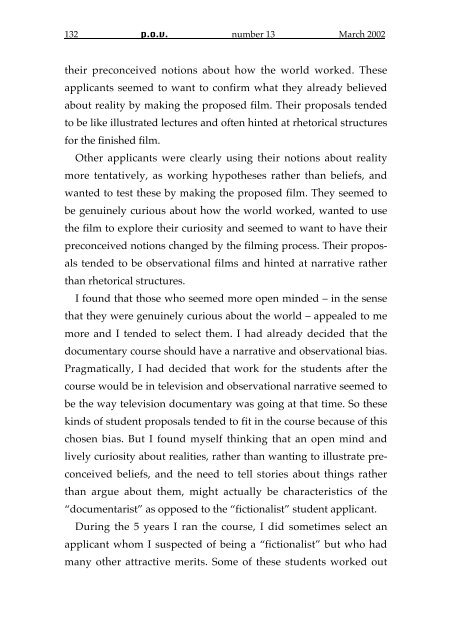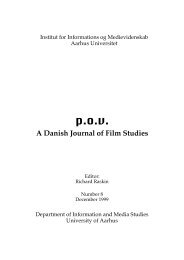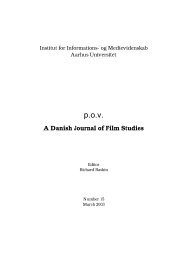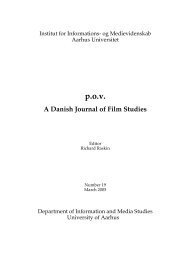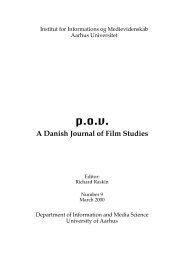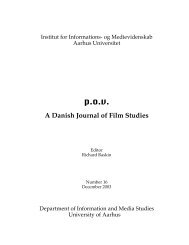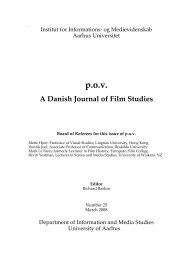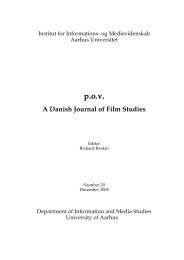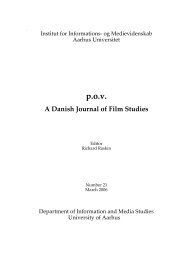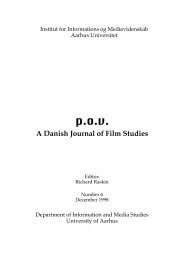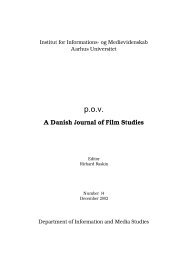The Face of Time - POV - Aarhus Universitet
The Face of Time - POV - Aarhus Universitet
The Face of Time - POV - Aarhus Universitet
You also want an ePaper? Increase the reach of your titles
YUMPU automatically turns print PDFs into web optimized ePapers that Google loves.
132 p.o.v. number 13 March 2002<br />
their preconceived notions about how the world worked. <strong>The</strong>se<br />
applicants seemed to want to confirm what they already believed<br />
about reality by making the proposed film. <strong>The</strong>ir proposals tended<br />
to be like illustrated lectures and <strong>of</strong>ten hinted at rhetorical structures<br />
for the finished film.<br />
Other applicants were clearly using their notions about reality<br />
more tentatively, as working hypotheses rather than beliefs, and<br />
wanted to test these by making the proposed film. <strong>The</strong>y seemed to<br />
be genuinely curious about how the world worked, wanted to use<br />
the film to explore their curiosity and seemed to want to have their<br />
preconceived notions changed by the filming process. <strong>The</strong>ir proposals<br />
tended to be observational films and hinted at narrative rather<br />
than rhetorical structures.<br />
I found that those who seemed more open minded – in the sense<br />
that they were genuinely curious about the world – appealed to me<br />
more and I tended to select them. I had already decided that the<br />
documentary course should have a narrative and observational bias.<br />
Pragmatically, I had decided that work for the students after the<br />
course would be in television and observational narrative seemed to<br />
be the way television documentary was going at that time. So these<br />
kinds <strong>of</strong> student proposals tended to fit in the course because <strong>of</strong> this<br />
chosen bias. But I found myself thinking that an open mind and<br />
lively curiosity about realities, rather than wanting to illustrate preconceived<br />
beliefs, and the need to tell stories about things rather<br />
than argue about them, might actually be characteristics <strong>of</strong> the<br />
“documentarist” as opposed to the “fictionalist” student applicant.<br />
During the 5 years I ran the course, I did sometimes select an<br />
applicant whom I suspected <strong>of</strong> being a “fictionalist” but who had<br />
many other attractive merits. Some <strong>of</strong> these students worked out


